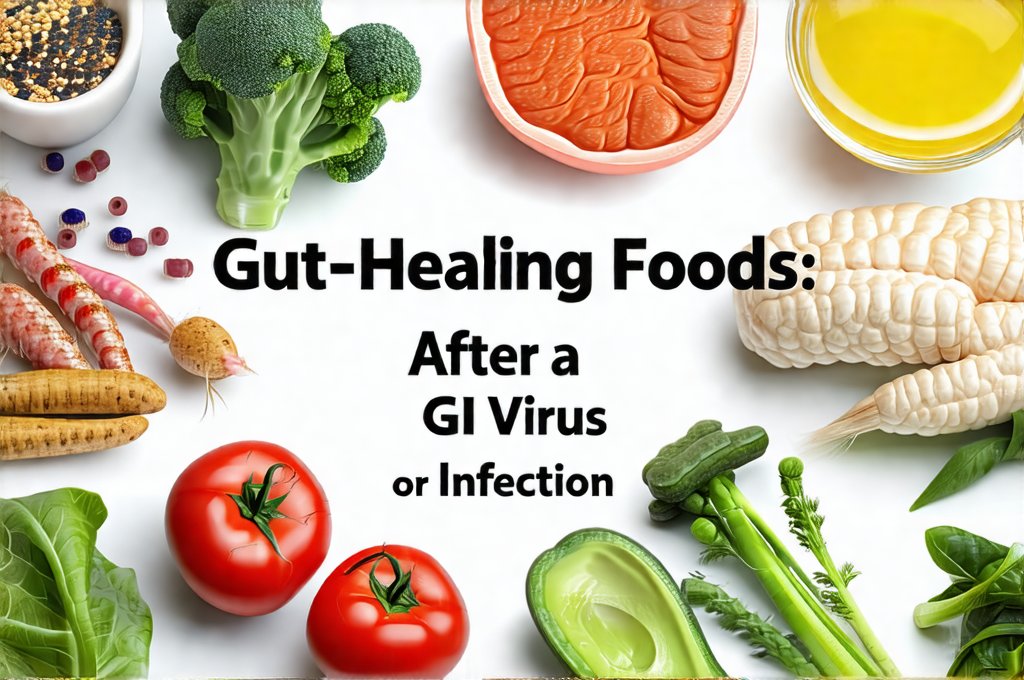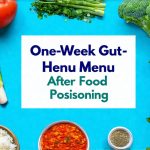Following a gastrointestinal (GI) virus or infection – whether it’s norovirus, rotavirus, or food poisoning – your gut can feel like it’s been through the wringer. Beyond the obvious symptoms like nausea, vomiting, and diarrhea, there’s often lingering discomfort, altered digestion, and even a sense of fatigue as your body works to rebuild. A key part of recovery involves nourishing your gut with foods that are gentle on the system yet provide the nutrients needed for healing. The goal isn’t about restrictive dieting; it’s about strategic food choices that support restoration of the delicate ecosystem within your digestive tract, allowing you to regain strength and vitality.
The GI tract is an incredibly resilient organ, but when faced with a viral or bacterial attack, its natural balance can be disrupted. This disruption often leads to inflammation and damage to the intestinal lining, potentially affecting nutrient absorption and overall gut health. Therefore, focusing on foods that soothe inflammation, promote healing, and encourage beneficial bacteria growth is paramount. Rebuilding this ecosystem isn’t about quick fixes; it’s a gradual process of consistently providing your body with the building blocks it needs to thrive. This article will explore specific food groups and dietary strategies to support gut-healing after a GI virus or infection, offering practical guidance for regaining digestive health.
Soothing & Easily Digestible Foods
The immediate aftermath of a GI illness often calls for a period of rest for your digestive system. This doesn’t mean complete starvation but rather prioritizing foods that are easy to digest and won’t exacerbate symptoms. The BRAT diet – bananas, rice, applesauce, and toast – has been traditionally recommended, and while it can be helpful in the initial stages, it’s important not to remain exclusively on these foods for extended periods as they lack sufficient nutrients. Expanding beyond BRAT to include other gentle options is crucial. Bone broth, rich in collagen and amino acids, is an excellent choice for healing the gut lining. Steamed vegetables like carrots and zucchini are also well-tolerated and provide essential vitamins. Lean proteins such as poached chicken or fish offer building blocks for tissue repair without being overly burdensome on digestion. If you recently had an endoscopy or GI upset, consider soft foods to aid in recovery.
Hydration is equally vital during this phase. Diarrhea and vomiting deplete fluids, leading to dehydration which can worsen symptoms. Water should be your primary source of hydration, but herbal teas – chamomile and ginger are particularly soothing – can also contribute. Electrolyte-rich beverages, like coconut water or diluted fruit juice, can help replenish lost minerals. Avoiding caffeine, alcohol, and sugary drinks is important as these can further irritate the digestive system. Remember that everyone reacts differently; listen to your body and introduce new foods gradually, observing how you feel. It’s also crucial to understand gut rest during this time.
Probiotic & Prebiotic Powerhouses
Once you’re able to tolerate more food, incorporating probiotic and prebiotic-rich options becomes essential for restoring gut health. Probiotics are beneficial bacteria that live in the digestive tract, aiding digestion, boosting immunity, and protecting against harmful pathogens. They can be found naturally in fermented foods like yogurt (choose plain, unsweetened varieties), kefir, sauerkraut, kimchi, and kombucha. If you struggle with dairy, non-dairy probiotic options exist as well. Prebiotics, on the other hand, are types of fiber that feed these beneficial bacteria, promoting their growth and activity. Foods rich in prebiotics include garlic, onions, leeks, asparagus, bananas (ripe ones are easier to digest), oats, and apples.
The synergy between probiotics and prebiotics – often referred to as synbiotics – is powerful for gut health. By providing both the bacteria and their food source, you create an optimal environment for a thriving microbiome. Introducing these foods slowly is recommended. Start with small portions and monitor your body’s response. If you experience bloating or gas, it might indicate that your gut needs more time to adjust. Supplementing with a high-quality probiotic may also be considered, but consult with a healthcare professional before starting any new supplement regimen. Understanding how to support recovery is key during this stage. If you are recovering from antibiotics, consider foods to eat.
Foods to Avoid During Gut Healing
While focusing on what to eat is important, knowing what to avoid is equally critical for a smooth recovery. Highly processed foods, sugary snacks, and fried foods can put extra stress on the digestive system and hinder healing. Gluten, found in wheat, barley, and rye, can be inflammatory for some individuals, so temporarily reducing or eliminating it may be helpful. Dairy products, particularly if you’re lactose intolerant, can also cause discomfort. Spicy foods, caffeine, alcohol, and artificial sweeteners should also be limited as they can irritate the gut lining.
Fatty foods can be difficult to digest during this period, potentially leading to diarrhea or nausea. It’s not about permanently eliminating these foods but rather avoiding them while your gut is recovering. Pay attention to how different foods affect you personally; food sensitivities vary from person to person. Keeping a food diary can help identify trigger foods and guide your dietary choices. Ultimately, the goal is to prioritize gentle, nourishing foods that support healing without exacerbating symptoms. If you’re dealing with a flare-up in children, consider reintroducing foods carefully. For those recovering from a stomach virus, reintroducing food slowly is paramount for avoiding further discomfort. You may also find it helpful to explore gut healing recipes.
The information provided in this article is for general knowledge and informational purposes only, and does not constitute medical advice. It is essential to consult with a qualified healthcare professional for any health concerns or before making any decisions related to your health or treatment.


















